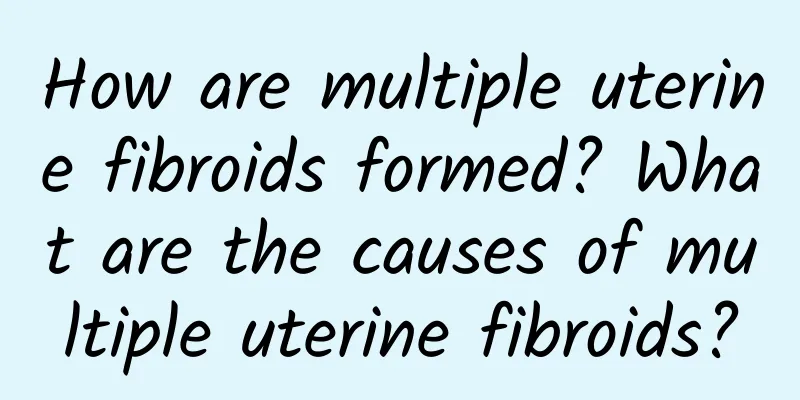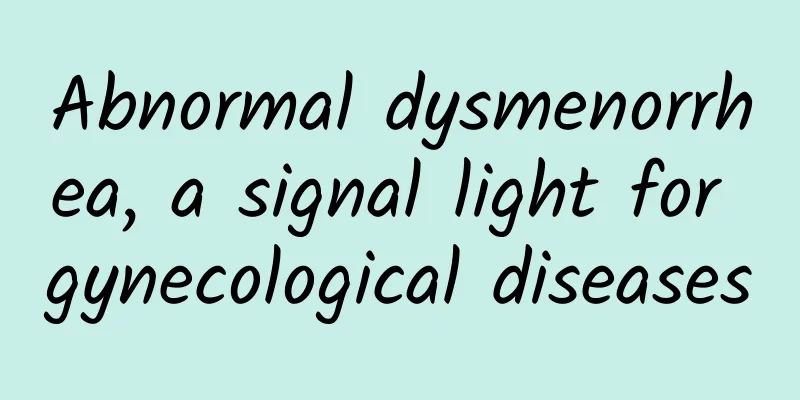How are multiple uterine fibroids formed? What are the causes of multiple uterine fibroids?

|
Uterine fibroids are common benign tumors in the reproductive system, which are more common between the ages of 35 and 50. They are very important to the lives and work of female friends. So, do you know what the causes of multiple uterine fibroids are? What are the effects of uterine fibroids? Uterine fibroids are usually multiple, and different types of fibroids can occur in the same uterus at the same time, which is called multiple uterine fibroids. The causes of multiple uterine fibroids are as follows: 1. Multiple uterine fibroids are often complicated by endometrial hyperplasia; 2. Patients with ovarian granulosa cell tumor and theca cell tumor (which can secrete estrogen) often have uterine fibroids; 3. During pregnancy, estrogen levels increase and fibroids grow rapidly; 4. Exogenous estrogen can accelerate the growth of fibroids; 5. Multiple uterine fibroids appear in women after menarche, which are more common in middle-aged women. After menopause, the fibroids stop growing and gradually shrink. If uterine fibroids continue to grow, the chance of malignancy will gradually increase. If not treated in time, it may even cause the following hazards: 1. Secondary anemia: Uterine fibroids can cause excessive menstrual bleeding. Over time, it can lead to secondary anemia and even anemic heart disease. In severe cases, patients may experience general fatigue, pale complexion, palpitations, shortness of breath and other adverse symptoms. 2. Adhesion or inflammation: After the subserosal uterine fibroid pedicle is twisted, intestinal adhesion will occur, and then it will be infected by intestinal bacteria. Inflammatory fibroids will adhere to the uterine appendages, causing suppurative inflammation. On the other hand, fibroids can also cause bacteria to invade other uterine organs, causing gynecological inflammation such as adnexitis and pelvic inflammatory disease. 3. Infection and suppuration: Uterine fibroids can cause pelvic congestion and infection. The infection is mainly caused by the torsion of the tumor pedicle, while hematogenous infection is extremely rare. After infection, a few patients develop abscesses in the tumor tissue, while the rest show suppuration. Uterine fibroids are very harmful to women's physical and mental health. Women must prevent gynecological diseases such as uterine fibroids in their daily lives. |
<<: Symptoms of multiple uterine fibroids What are the complications of multiple uterine fibroids
>>: Anemia in women is caused by multiple uterine fibroids.
Recommend
Basketball for fried chicken! Fat boy reduced his BMI in half a year
How to help fat kids lose weight during summer va...
What should I pay attention to in my diet for premature ovarian failure?
What should I pay attention to in my diet for pre...
What should I do if my menstruation is irregular after taking birth control pills?
Irregular menstruation after taking birth control...
What kind of exercise is suitable for patients with ectopic pregnancy?
What kind of exercise is suitable for patients wi...
Can I eat radish and pork ribs soup after miscarriage? The specific method of radish and pork ribs soup
Many patients understand that they need to take s...
Experts will explain to you the symptoms of secondary dysmenorrhea
It is necessary for everyone to understand the sy...
Symptoms and causes of female cervicitis Introduction to the three major treatment methods for female cervicitis
Cervicitis is a female gynecological disease that...
Pelvic inflammatory disease in women is mainly caused by infection
In our lives, everyone should know about pelvic i...
Is eating too much oil the culprit for obesity? Lack of oil can easily lead to stress fertilizer! Nutritionist Liu Yili: 5 tips for losing weight without gaining weight back
If you want to lose weight successfully, you don&...
What causes miscarriage?
What causes miscarriage? The causes of miscarriag...
Analysis of common drugs for threatened abortion
After suffering from threatened abortion, many pa...
Women must take precautions against pelvic inflammatory disease
Pelvic inflammatory disease is a common gynecolog...
What is adenomyosis and what causes it
Adenomyosis is the most common gynecological dise...
Which pregnant women are not suitable for painless abortion?
Eugenics and good parenting have always been advo...
Causes of pelvic peritonitis
Pelvic peritonitis should not be a strange diseas...









